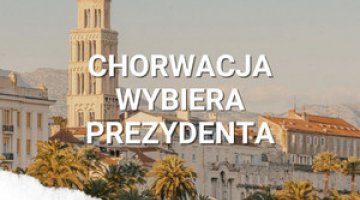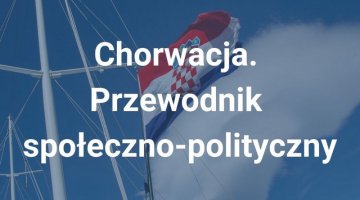Croatia sets conditions for Montenegro’s accession to the EU
According to reports from the Montenegrin daily Vijesti, Croatian authorities have presented the Montenegrin government with a document containing a 10-point list of issues that must be resolved before Montenegro can join the European Union. While emphasising its support for Podgorica’s EU aspirations, Zagreb expects concrete actions to improve neighbourly relations. Key demands include the delimitation of maritime borders, the resolution of disputes over post-Yugoslav property and national minority rights, as well as the settling of historical issues.
These reports have emerged at a time when Montenegro is seeking to close four negotiation chapters with the EU. A potential blockade of Podgorica’s EU accession process by Zagreb would represent yet another instance of using the European integration framework to pressure aspiring member states into making concessions in bilateral disputes. Such tactics negatively impacts the dynamics of accession talks and undermine the credibility of EU membership prospects, which in turn, contributes to declining public support for integration among Balkan societies.
Commentary
- Over the past year, relations between Zagreb and Podgorica have significantly deteriorated. This is partly due to a resolution passed by the Montenegrin parliament in June concerning Jasenovac, a World War Two-era concentration camp in the fascist Independent State of Croatia. The resolution was a reaction by pro-Serbian parties within Montenegro’s ruling coalition to Montenegro’s support for a UN resolution on Srebrenica (see ‘The Srebrenica resolution: slim chances for reconciliation’). In response to the adoption of the Jasenovac resolution, the Croatian Ministry of Foreign Affairs issued a protest note, and three pro-Serbian Montenegrin politicians, including the speaker of parliament and the deputy prime minister, were declared persona non grata in Croatia. Zagreb is demanding the delimitation of the maritime border near the Prevlaka peninsula, which is currently regulated under a temporary arrangement stemming from a 2002 agreement (the commission established to resolve the dispute last met in 2015). The note also emphasised the need for greater protection of the Croatian minority in Montenegro, particularly with regard to education (according to the most recent census, Croatians comprise 0.7% of Montenegro’s population). Croatia is also demanding the return of the training ship ‘Jadran’, which currently belongs to the Montenegrin Navy. Croatia argues that during the breakup of Yugoslavia, the vessel was only temporarily stationed in Tivat for planned maintenance. The politics of memory surrounding the 1990s war remains another significant area of tension. Croatia insists on the proper commemoration of its victims and has urged Montenegro to amend the text on a plaque commemorating the Morinj camp, hold the perpetrators of war crimes accountable, and undertake efforts to locate individuals who went missing during the conflict.
- One of Croatia’s long-term goals is to stabilise its neighbouring countries and support their EU membership aspirations, while simultaneously pursuing its own specific interests. In 2023, Croatia joined the ‘Friends of the Western Balkans’ group, which aims to accelerate the accession of the region’s states to the EU. However, the authorities in Zagreb have also utilised the enlargement process as an effective means of exerting pressure on its neighbours (particularly Serbia), coercing them into making concessions on various contentious issues. The European Commission’s annual report on Montenegro’s progress in specific negotiation chapters highlighted the deterioration of Croatia’s relations with Montenegro. Escalation of tensions may result in a deadlock in Podgorica’s integration process. However, it appears that Croatia’s approach is likely to be more constructive than, for example, Bulgaria’s, which persistently blocked EU accession talks for North Macedonia. A potential Croatian veto could amplify anti-EU sentiment in Montenegro and further undermine the credibility of EU membership prospects for the Western Balkan states.
- The response of the authorities in Podgorica to the document displays their willingness to engage in talks regarding the outlined demands, as accelerating the European integration process remains a top priority for Milojko Spajić’s government (see ‘Montenegro’s new government: the long-awaited stabilisation of the executive branch’). Montenegro is the most advanced Western Balkan state in its preparations for EU accession. Even the pro-Serbian and pro-Russian parties within the ruling coalition refrain from expressing excessive criticism of Zagreb, despite differing in their visions for Montenegro’s political future. The Montenegrin government’s moderate response to Croatia’s demands contrasts sharply with the rhetoric of Montenegro’s pro-Serbian media and pro-government media outlets in Serbia, which portray Croatia’s diplomatic moves as attempts to undermine the national interests and identity of Serbs in Montenegro. One likely scenario for the development of this situation is that Podgorica will continue to de-escalate tensions in bilateral relations by maintaining dialogue and direct contact with Zagreb, while avoiding significant concessions in the area of historical memory policy, as such concessions could jeopardise the cohesion of the ruling coalition.




